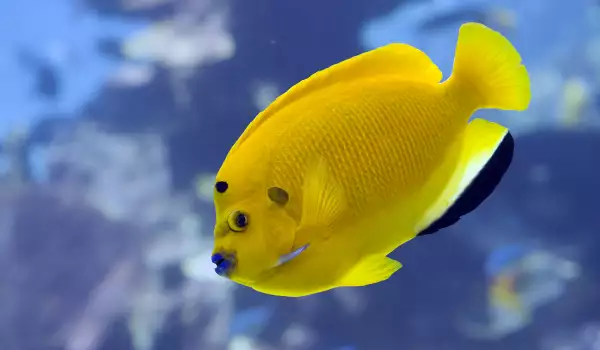Research by British scientists has proven that fish can remember a given event for 2 weeks, and not just a few days, as was previously thought. This led to the busting of the myth that fish have a short-term memory.
A team of experts shared with the British Telegraph that they have managed to train a group of African cichlids - a type of freshwater fish, to locate a certain area within an aquarium, where there is always food.
The training of the fish took the scientists 3 days, after which the fish knew exactly where to look for food in the aquarium.
After the 12th day however, the sea creatures began to have difficulties finding the exact location, and after exactly 2 weeks, they completely forgot what they had learned.
Through the experiment, the researchers managed to prove that the memory of fish is not as short as was presumed and that the creatures have much greater mental capabilities.
Among fish, there are also poisonous species, such as the stonefish, whose back contains 13 spines filled with venom that is deadly to humans.

The stonefish swims in the waters of Australia and Southeast Asia.
In nature there exist over 20 000 species of fish, divided into 3 groups - agnatha, cartilaginous and bony, with 90% of them being bony.
The largest fish is the whale shark. It reaches lengths of up to 59 ft (18 m) and feeds only on plankton. Fish are 1 of the 6 main groups of animals and are adapted to life entirely in the water.
The first fish remains were found from the Cambrian period and are believed to date back to 510 million years ago.
Fishes' body temperature is the same as their surrounding environment, labeling them as cold-blooded members of the animal kingdom.
The popular image of the golden fish that can grant wishes comes from fairy tales, as the legends go.
It is however the goldfish that is one of the most greedy aquarium fish - even if you have just fed them, they would take pleasure in eating once again after just a few minutes. If living in suitable conditions, they can live up to 20 years.








